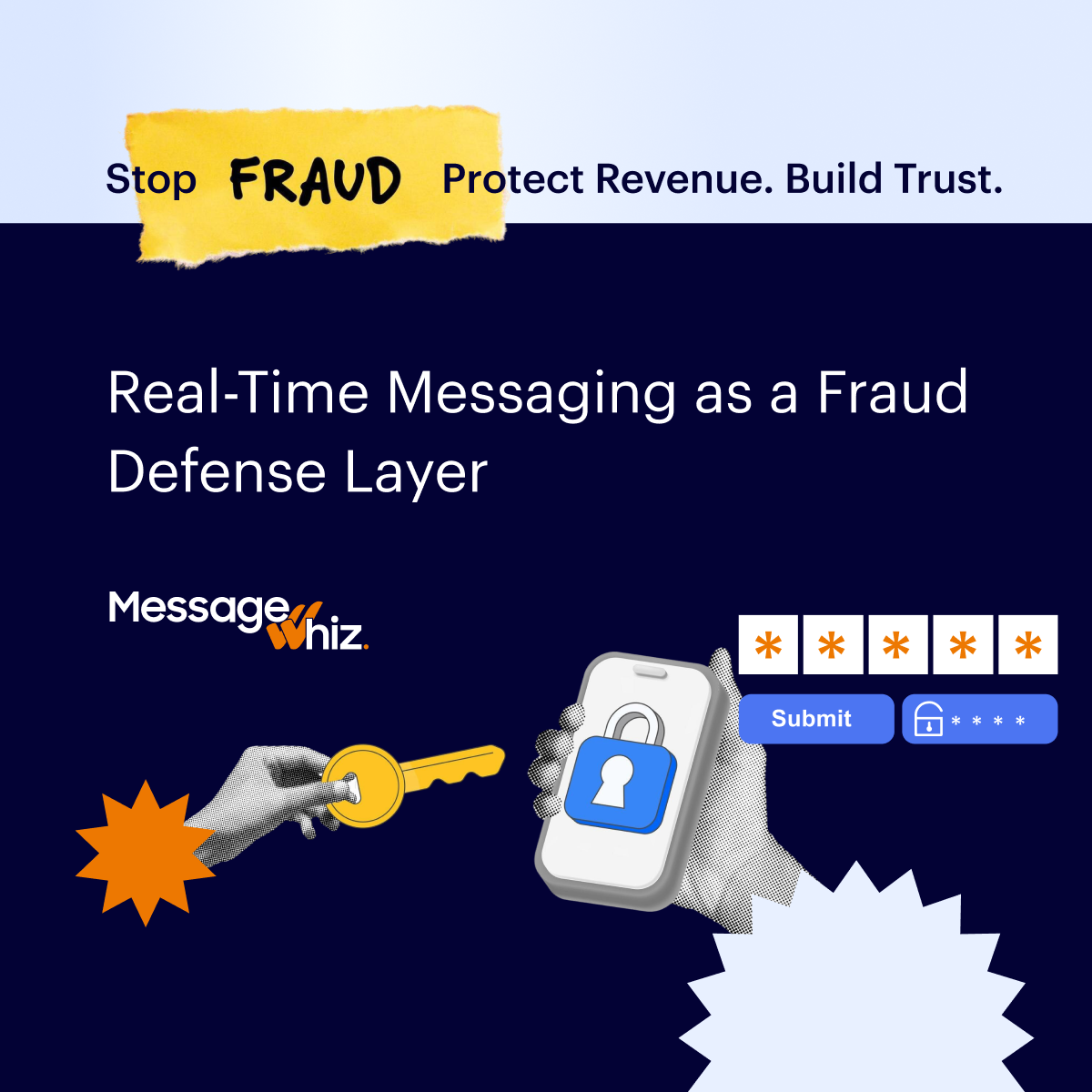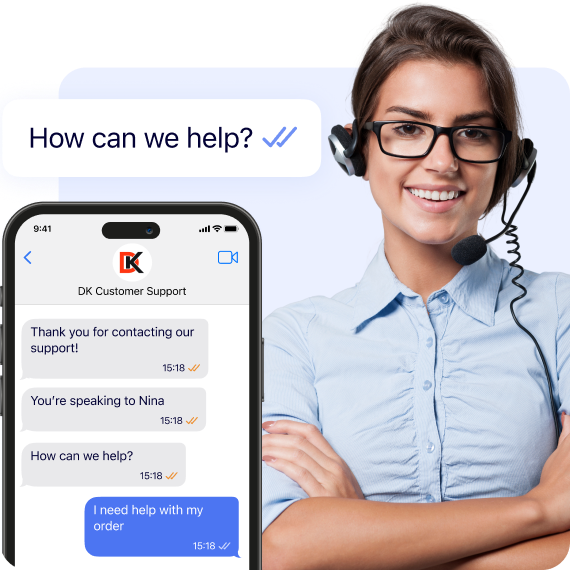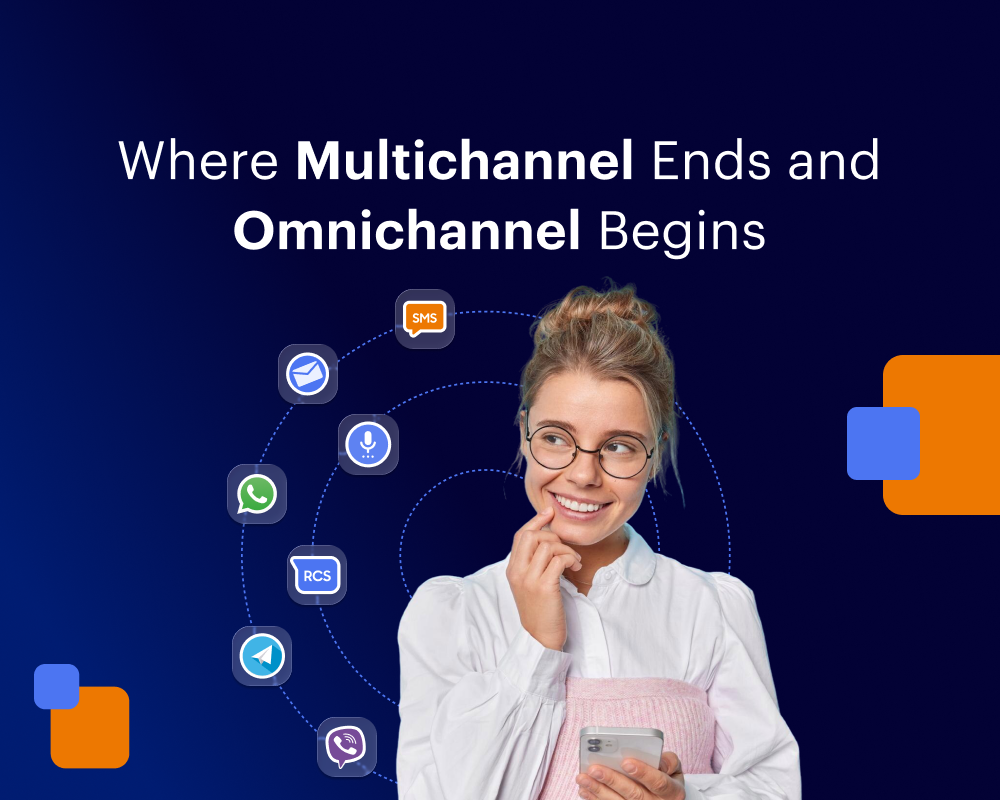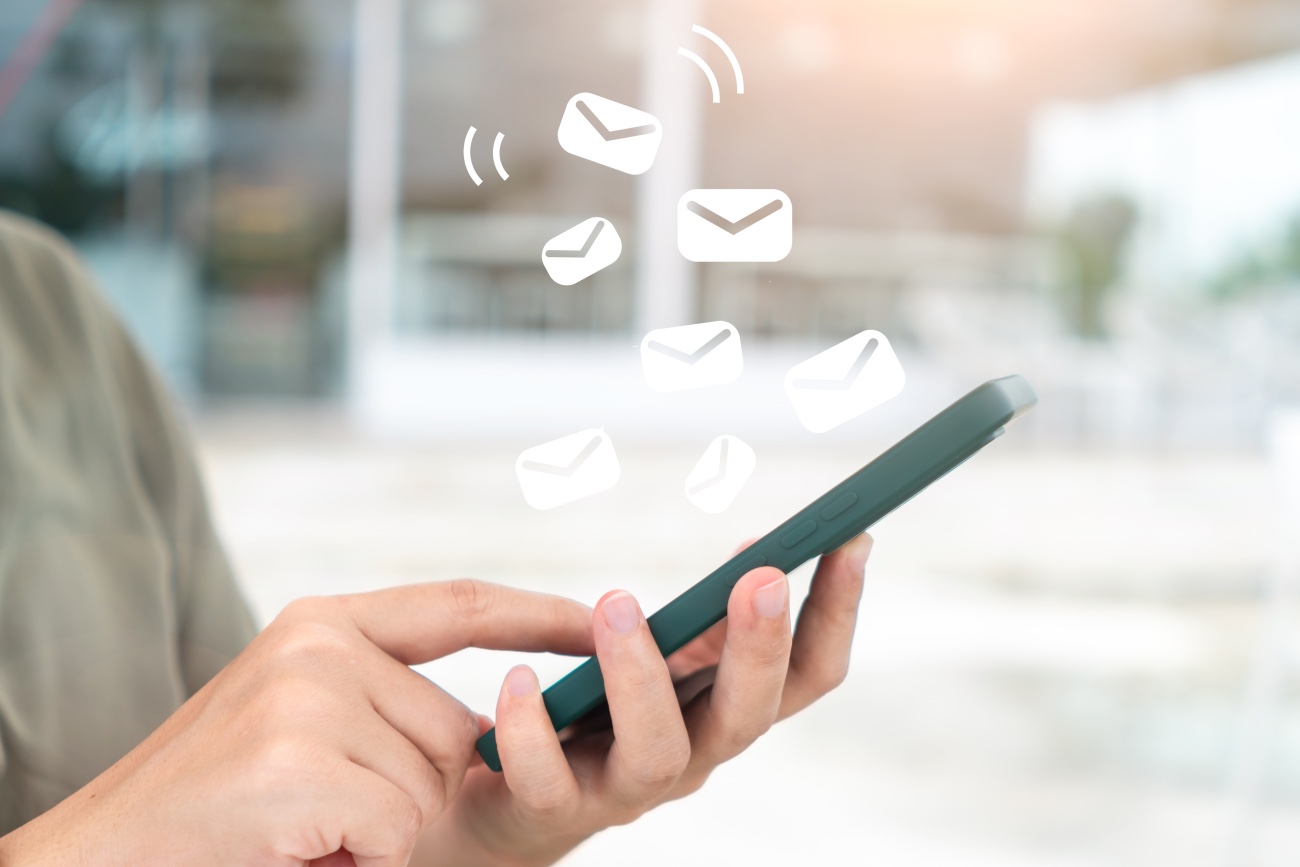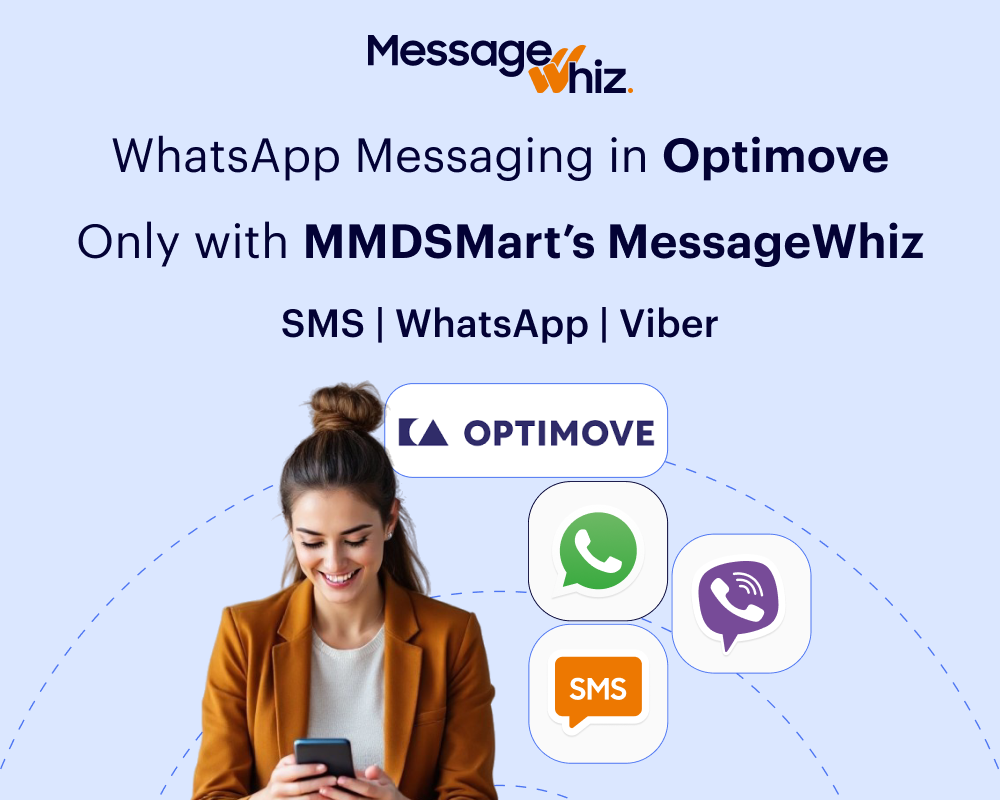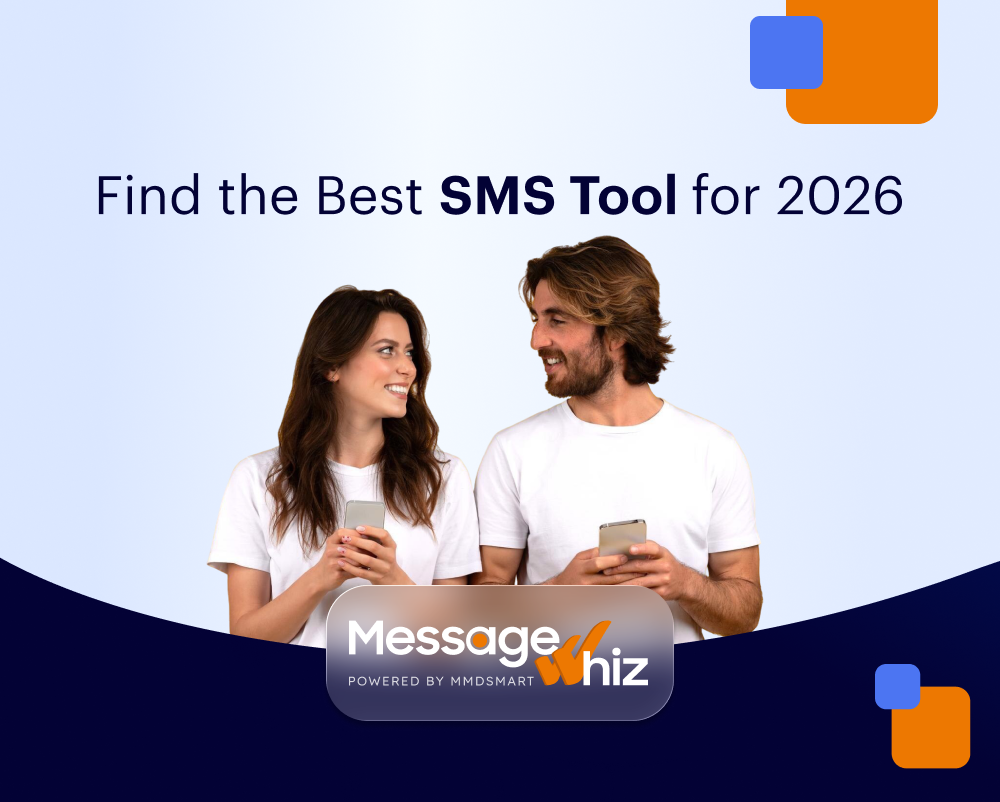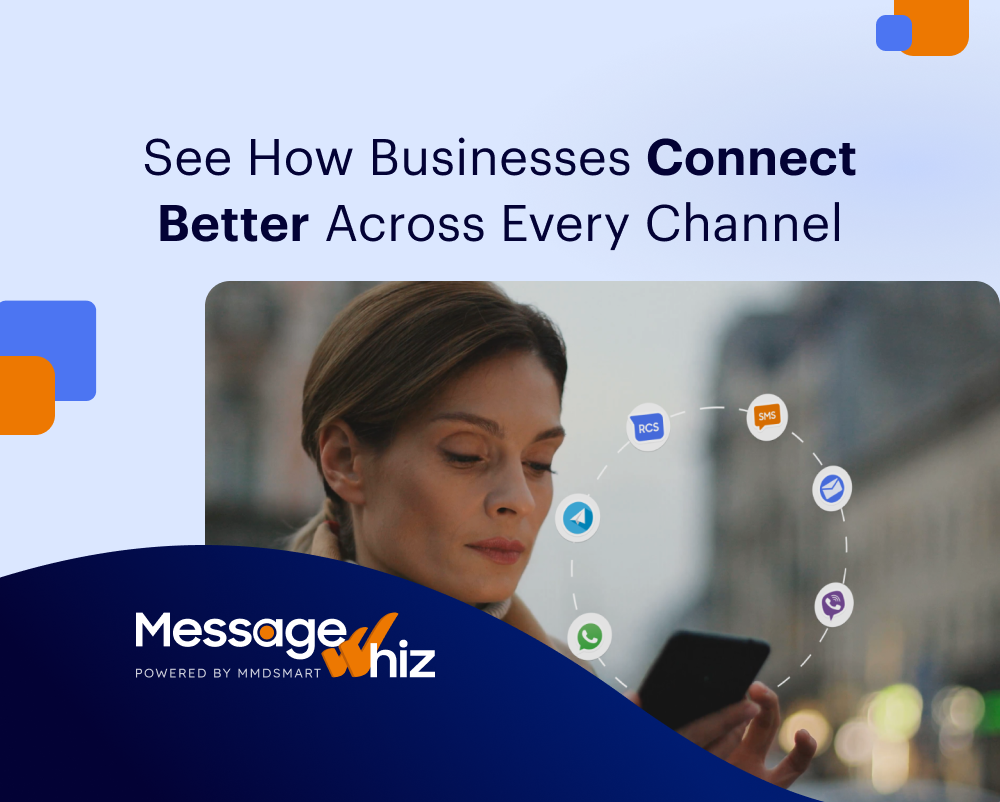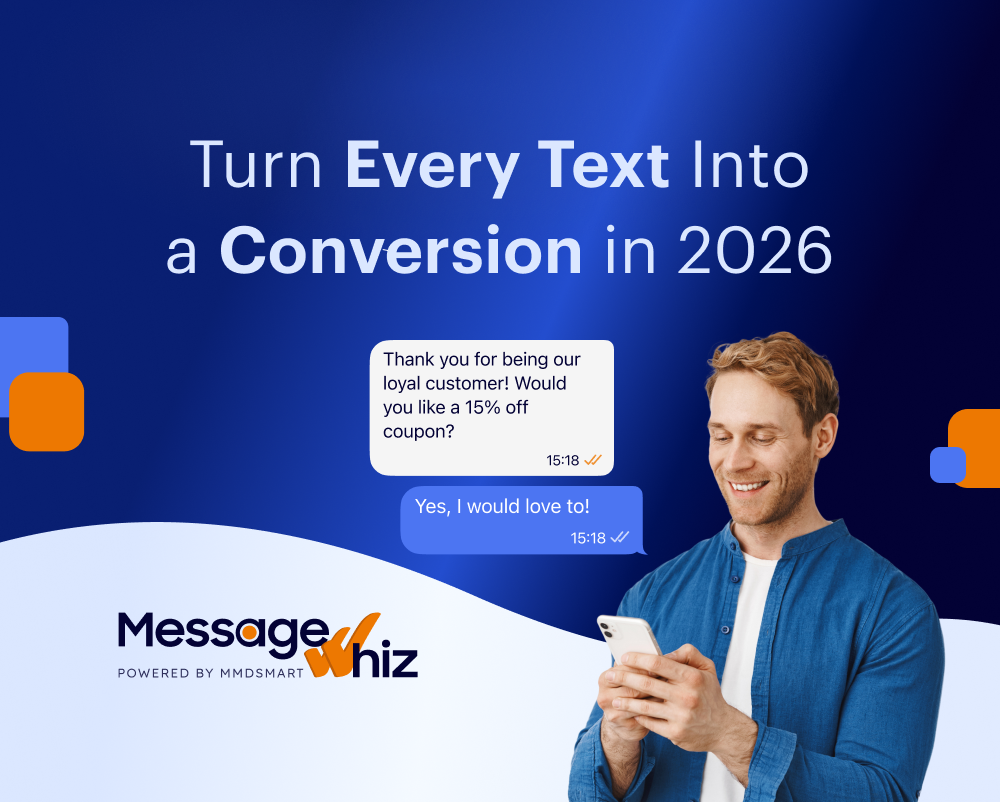What Are SMS Marketing Services?
SMS marketing services are platforms that allow businesses to send promotional or transactional messages directly to customer mobile phones using text messaging. Unlike email marketing, which often goes unread or ends up in spam folders, SMS offers a direct line into the palm of your customer’s hand. Companies use these platforms to distribute personalized offers, alerts, reminders, and updates, ensuring their messages reach customers quickly.
These services typically include features such as contact list management, message scheduling, automation, and analytics. An SMS marketing platform provides the tools needed to design, execute, and refine messaging campaigns at scale. Because of the near-universal reach of mobile phones, SMS marketing is a highly efficient communication method across industries, including retail, healthcare, finance, and service-based businesses.
Benefits of Text Message Services
Text message services provide a reliable, high-engagement way to communicate with customers. They help businesses reach audiences instantly and support better response rates compared to other channels.
Key benefits include:
- High open rates: SMS messages have open rates of over 90%, significantly higher than email. Most recipients read texts within minutes of receiving them.
- Immediate delivery: Messages are delivered almost instantly, making SMS ideal for time-sensitive updates like flash sales, appointment reminders, or urgent alerts.
- Better engagement: With concise messaging and clear calls to action, SMS marketing often drives higher click-through and conversion rates than other digital channels.
- Personalization options: SMS services allow businesses to segment audiences and send tailored messages based on customer behavior, preferences, or location.
- Wide reach: SMS works on all mobile devices, regardless of model or operating system, and doesn’t require an internet connection, expanding accessibility.
- Automation and scheduling: Marketers can automate drip campaigns, schedule future messages, and trigger messages based on customer actions, increasing efficiency.
How SMS Marketing Services Work
SMS marketing services operate through a combination of software tools, carrier integrations, and automation features that allow businesses to manage and deliver text messages at scale:
- First, a business imports or builds a contact list, typically by collecting phone numbers through opt-in forms, online checkouts, or keyword-based subscriptions (e.g., “Text JOIN to 12345”).
- The platform stores these contacts in a database with segmentation options based on behavior, demographics, or engagement history.
- Once the contact list is in place, users create messages using the platform’s editor. These messages can include plain text, short URLs, and merge fields for personalization (like customer names or appointment times).
- Marketers can schedule messages in advance or set up automation rules to trigger texts based on specific customer actions, such as purchases, sign-ups, or abandoned carts.
- The platform then routes messages through SMS gateways that connect to mobile carrier networks. This ensures messages are delivered quickly and reliably to recipients’ phones.
- After sending, the platform collects performance data, such as delivery status, open rates (via link tracking), response rates, and opt-outs. This data helps marketers assess campaign effectiveness and refine future messaging strategies.
Key Features of a Modern SMS Marketing Services
Campaign Creation and Automation Tools
Modern SMS marketing platforms provide campaign creation tools that allow businesses to craft, schedule, and automate text campaigns. Drag-and-drop editors and pre-built templates simplify the process of designing consistent messaging, while automation enables businesses to set rules for delivery based on customer actions, time zones, or specific segments. Scheduled campaigns help ensure messages go out at optimal times, maximizing engagement and conversion rates.
Automation also extends to drip campaigns, birthday messages, and event-triggered notifications. For example, customers who abandon online carts can receive automated reminders, or subscribers can receive special offers on their anniversary. By reducing manual intervention, these tools increase efficiency and allow businesses to scale their communications with minimal effort.
Audience Segmentation and Personalization
Segmentation features enable businesses to divide their customer base into meaningful groups based on demographics, behavior, purchase history, or engagement. Targeting specific segments ensures that recipients receive messages relevant to their interests, increasing the likelihood of engagement and conversion. Personalization options, such as merging customer names or referencing past purchases, further enhance the effectiveness of each message.
Dynamic content and custom fields take personalization beyond inserting a recipient’s name. Platforms can include unique coupon codes, localized offers, or tailored recommendations based on customer preferences. Effective segmentation and personalization not only improve campaign performance but also foster stronger customer relationships by providing genuine value in every interaction.
Two-Way Messaging and Chat Capabilities
Two-way messaging capabilities allow recipients to reply directly to SMS campaigns, opening a real-time communication channel between businesses and their customers. This interactivity is useful for gathering feedback, handling customer service inquiries, or running text-to-win contests. Responding in a timely manner to incoming messages increases brand trust and enhances customer experience.
Platforms supporting chat features may integrate with customer support software or route messages to different departments. Some tools offer keyword-based responses, enabling automated replies for common questions. Effective two-way communication adds value beyond the initial campaign, helping brands nurture relationships and address customer needs as they arise.
Reporting and Analytics Dashboards
In-depth reporting and analytics dashboards are essential for measuring the success of SMS marketing efforts. These dashboards track critical metrics such as message delivery rates, open rates, responses, and link clicks. By analyzing these data points, marketers can identify what works and what needs improvement, ensuring campaigns are continually optimized for better results.
Advanced platforms can segment results by campaign, customer group, or time period, enabling granular performance analysis. Many solutions offer export options for deeper analysis or integration into existing business intelligence tools. With easy access to campaign data, decision-makers can demonstrate ROI and adjust strategy based on actionable insights.
Integrations and API Connectivity
Integration capabilities are crucial for businesses that rely on multiple marketing tools or need to synchronize data between systems. Modern SMS marketing services offer API connectivity, allowing integration with CRM, e-commerce, marketing automation platforms, and customer databases. This connectivity streamlines workflows by automating tasks such as importing contacts, triggering campaigns based on external events, or syncing engagement data.
Well-designed APIs support advanced automation, including triggered workflows, real-time updates, and personalized messaging at scale. Pre-built integrations with popular platforms like Shopify, Salesforce, or Zapier reduce setup time and technical complexity. Strong integration features ensure SMS can play a central role in a brand’s omnichannel marketing strategy.
10 Notable SMS Marketing Services
Side-By-Side Comparison
| Platform | Main Focus | Key Features | Starting Price |
| MessageWhiz | Omnichannel customer engagement and automation | SMS, WhatsApp, RCS, email, and voice messaging; campaign automation; personalized journeys; delivery analytics; API and CRM integrations | Pay-as-you-go |
| Sinch | Conversational & transactional messaging | WhatsApp + SMS, team inbox, automation, analytics, CRM integrations | Custom pricing |
| Twilio | Developer-centric messaging APIs | Omnichannel, deliverability monitoring, AI compliance tools, real-time dashboards | Pay-as-you-go, starts at $0.0083 per SMS |
| Vonage | Business SMS via phone systems | SMS/MMS via VBC apps, 10DLC compliance, desktop/mobile access, auto opt-out | VBC plans + 10DLC fees |
| Postscript | SMS for Shopify eCommerce | Shopify integration, conversational AI, popup list building, 34x ROI, legal compliance | From $100/month |
| Omnisend | Omnichannel eCommerce marketing | No-code onboarding, SMS/email automation, TCPA-compliant forms, lifecycle targeting | From $16/month |
| TextMagic | Mass texting at scale | Bulk sends, two-way chat, personalization, recurring texts, CSV import | ~$0.04/SMS (US), no fees |
| Infobip | Global enterprise messaging | 800+ telco links, promotional/OTP support, personalization, 2FA, analytics | Custom pricing |
| EngageBay | CRM-based messaging for SMBs | SMS + CRM workflows, AI automation, templates, multichannel dashboard | From $14.99/month |
| MessageDesk | Shared SMS inbox for teams | Use existing numbers, team chat, scheduling, collaboration tools, 10DLC compliance | From $14/month |
| Attentive | High-ROI retail SMS marketing | AI-driven content, SMS/MMS/RCS, dynamic personalization, Suggested Replies, concierge support | Custom enterprise plans |
| SlickText | Subscriber growth + segmentation | AI Compose, QR opt-ins, real-time targeting, automated journeys, advanced segmentation | From $29/month |
1. MessageWhiz
MessageWhiz is an omnichannel messaging platform that helps businesses communicate with customers across SMS, WhatsApp, RCS, email, and voice. It supports both marketing and transactional messaging, providing automation tools, detailed analytics, and global coverage to improve engagement and retention.
Pros:
- Omnichannel reach: Manage conversations and campaigns across SMS, WhatsApp, RCS, email, and voice through one platform, maintaining consistency and context in every interaction.
- Automation and scheduling: Create and manage automated drip campaigns, transactional alerts, and triggered workflows based on customer behavior, time zones, or CRM events.
- Personalized messaging: Segment audiences, personalize content dynamically, and optimize message timing to maximize engagement and conversion rates.
- Two-way communication: Enable real-time customer conversations and feedback with two-way messaging and support for verified business profiles on WhatsApp.
- Analytics and delivery insights: Track delivery, read, and click-through rates with intuitive dashboards that measure engagement performance and ROI across channels.
- Global scalability: Send messages worldwide through reliable carrier connections with high delivery rates and local compliance support.
- 24/7 customer support: Access round-the-clock technical assistance and onboarding help to ensure uninterrupted campaign performance and timely resolution of issues.
Cons:
- Integration setup: While MessageWhiz offers flexible APIs and CRM integrations, new users may require initial support to connect systems and configure automation workflows.
Pricing:
- MessageWhiz offers both pay-as-you-go and subscription-based plans, with transparent, region-specific pricing.
- SMS messages start at approximately $0.01 per message, and volume discounts are available for businesses running high-frequency or large-scale campaigns.
Learn more or get started with a free account at MessageWhiz.com/pricing
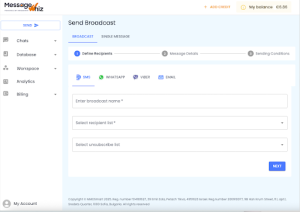
2. Sinch Engage
![]()
Sinch Engage combines SMS and WhatsApp into one platform for promotional, transactional, and conversational messaging. It supports automation, two-way replies, analytics, and native integrations, with GDPR and ISO 27001 compliance.
Pros:
- Messaging across channels: Send messages with images, GIFs, and videos on SMS and WhatsApp, supporting promotions, discounts, and interactive campaigns.
- Automated notifications and reminders: Trigger bill payment updates, event notices, and appointment reminders from CRM, ERP, or martech systems with configurable drip campaigns.
- Two-way conversations and inbox: Manage replies across channels in a team inbox, assign conversations to staff, and use templates for automated responses to common questions.
- Integrations and data sync: Connect natively with Salesforce, HubSpot, Netsuite, Shopify, Zoho, and ActiveCampaign to sync contacts, automate notifications, and track engagement.
- Analytics and performance tracking: Monitor subscriber growth, delivery rates, and click-through metrics to evaluate campaign outcomes and adjust messaging strategies over time.
Cons:
- Higher pricing: Compared to alternatives, Sinch Engage is often viewed as more expensive, which may be a barrier for smaller teams or startups.
- Limited positioning: While suitable for messaging and customer communication, Sinch is less prominent in broader martech or CRM categories, making it less of a go-to platform for businesses looking for a full marketing suite.
- Competition from niche tools: Users exploring specific features like live chat, advanced reporting, or deep WhatsApp automation may find better-suited functionality in more specialized or dedicated platforms.
Pricing:
- No public pricing tiers available
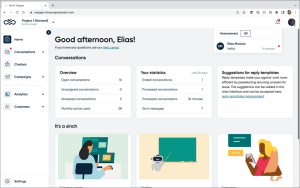
Source: Sinch
3. Twilio

Twilio provides SMS marketing across multiple channels, with tools for scheduling, link tracking, deliverability monitoring, and compliance. It supports global campaigns, conversational flows, and can extend into Twilio’s broader customer engagement platform.
Pros:
- Omnichannel messaging support: Run marketing across SMS, MMS, RCS, WhatsApp, Facebook Messenger, enabling tailored notifications and campaigns from onboarding to promotions and reactivation.
- Messaging Engagement Suite: Use message scheduling, link shortening with click tracking, advanced data, and real-time dashboards to simplify development and improve campaign performance monitoring.
- Customer Deliverability Engine: Identify traffic anomalies in real time, troubleshoot engagement with an AI assistant, and monitor deliverability through a dedicated dashboard for ongoing improvements.
- Compliance Toolkit (beta): Proactively detect potential regulatory or policy violations using AI and prevent non-compliant messages from being transmitted to manage obligations.
- Global reach and reliability: Initiate campaigns in 180+ countries with 99.95% uptime and thousands of carrier connections to support large-scale messaging programs.
Cons:
- Setup complexity: Twilio can be more difficult to configure initially, especially for users without a development background, compared to alternatives with simpler interfaces.
- Administrative overhead: Some users report that managing and maintaining Twilio’s services requires more effort and ongoing admin work.
- Slower ROI: Twilio’s broader platform may lead to longer implementation times and delayed return on investment for teams focused solely on SMS marketing.
Pricing:
- Pay-as-you-go, usage-based pricing.
- SMS pricing starts at $0.0083 to send or receive a message
- No subscription required.
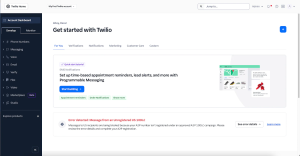
Source: Twilio
4. Vonage
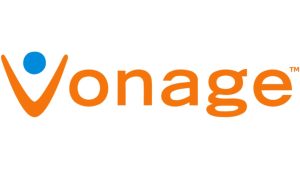
Vonage Business Communications enables business SMS from desktop and mobile apps using your VBC number. It supports SMS/MMS in the U.S. and Canada, provides 10DLC registration workflows, and includes automated opt-out handling.
Key features include:
- Business SMS via VBC apps: Send and receive SMS and MMS using Vonage Business Communications desktop and mobile apps tied to your business phone number.
- Consistent business identity: Maintain a unified identity across devices when texting and calling, with communications available virtually anywhere through supported applications.
- US and Canada messaging: Send and receive messages to and from U.S. and Canada numbers, supporting common customer interactions and internal communications.
- 10DLC registration workflow: Register business SMS numbers to meet industry standards and regulations, with a built-in process for compliance and associated fees.
- Opt-Out Assist automation: Automatically respond to STOP, HELP, and opt-in keywords, set predefined replies, and block numbers to simplify compliance with 10DLC requirements.
- Cross-platform availability: Access VBC on Mac and Windows desktops, plus iOS and Android devices, to manage business texting across environments.
Cons:
- Difficult to use: Some users find Vonage Communications APIs harder to administer and configure compared to competing platforms.
- Limited support quality: Users report that customer support is less responsive or helpful than top alternatives, which can slow down troubleshooting and onboarding.
- Slower results: Compared to other cPaaS providers, Vonage is seen as slower to deliver measurable outcomes or ROI, particularly for teams focused on quick campaign execution.
Pricing:
- Offered through Vonage Business Communications plans.
- Additional fees apply for 10DLC registration of SMS business numbers.
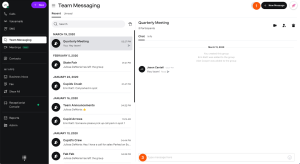
5. Postscript

Postscript is an SMS marketing platform for eCommerce merchants, offering tools to help turn text messaging into a revenue channel. Focused on SMS, Postscript helps brands grow their subscriber lists faster, drive higher conversions, and engage shoppers through real-time, conversational experiences.
Pros:
- eCommerce focus: Designed exclusively for eCommerce, Postscript integrates deeply with Shopify and supports store-specific campaigns and automations.
- Conversational AI: The Shopper assistant provides always-on, 1:1 conversations that answer questions and drive purchases in real time.
- High ROI messaging: Campaigns and automations are optimized using AI-powered testing, delivering an average of 34x ROI.
- Rapid list growth: Onsite opt-in, cashback offers, and a popup editor help brands grow their SMS list faster.
- Compliance built in: Postscript includes in-house legal expertise and policy leadership to help merchants stay compliant and avoid legal risks.
Cons:
- Higher cost: Compared to alternatives, Postscript is often perceived as more expensive, which may not suit smaller eCommerce teams or early-stage brands.
- Limited to eCommerce: The platform is tightly focused on online retail, which may reduce its flexibility for use cases outside of Shopify or eCommerce workflows.
- Competitive alternatives: Some tools offer broader feature sets or faster ROI, making them more attractive for teams needing multi-channel marketing or deeper integrations.
Pricing:
- No free plan; paid plans start at $100/month
- Pricing scales based on number of messages and list size
- Custom enterprise plans available for high-volume stores
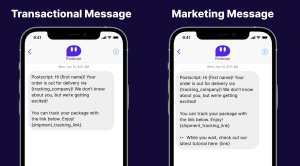
6. Omnisend
![]()
Omnisend’s SMS marketing solution helps eCommerce brands automate, personalize, and scale their text messaging campaigns. Designed for omnichannel uses, Omnisend enables merchants to launch compliant, revenue-driving SMS strategies using pre-built templates, no-code tools, and performance tracking.
Pros:
- Pre-built automation templates: Launch campaigns like abandoned cart reminders or welcome messages using tested SMS workflows tailored for conversions.
- No-code setup: Get started in minutes with a simple, four-step onboarding process, no developer needed.
- Real-time reporting: Track clicks, conversions, and sales as they happen with real-time analytics.
- TCPA-compliant signup forms: Collect phone numbers safely using mobile-optimized forms that follow double opt-in and regulatory best practices.
- Lifecycle targeting: Send personalized messages based on customer lifecycle stages to improve timing and relevance.
Cons:
- Slower ROI: Users report that it can take longer to see measurable results from Omnisend compared to more focused or specialized alternatives.
- Feature gaps for advanced users: While solid for basic automations, some reviewers note that Omnisend may lack the depth or sophistication found in higher-end marketing platforms.
- Limited competitive edge: In categories like email marketing or personalization, competitors such as ActiveCampaign or Klaviyo are often rated as better at meeting complex requirements.
Pricing:
- Free plan available with limited SMS credits
- Standard plan starts at $16/month, includes automation and email/SMS campaigns
- Pro plan includes advanced reporting and unlimited emails; SMS billed separately
- SMS credits are usage-based and vary by country
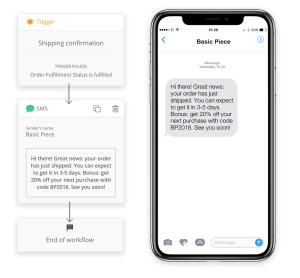
7. TextMagic

TextMagic is a mass texting platform that helps organizations deliver personalized SMS messages to large audiences quickly and reliably. Designed for scale, it supports both marketing and operational use cases, from promotional campaigns to appointment reminders, while ensuring compliance and deliverability.
Pros:
- Mass text messaging: Instantly send messages to thousands of recipients with high deliverability and speed.
- Two-way SMS chat: Engage in real-time conversations by allowing recipients to reply directly to messages.
- Dynamic fields & personalization: Customize messages with recipient-specific details for better engagement.
- Scheduled & recurring messages: Plan ahead with scheduled sends or set up recurring texts for ongoing reminders.
- Contact management: Organize and segment contacts directly within the platform, or import lists via CSV and Excel.
Cons:
- Fewer advanced features: Compared to competitors, TextMagic lacks some of the automation, personalization, and campaign management tools that more modern platforms offer.
- Limited integrations: Users may find fewer native integrations with CRMs, eCommerce platforms, or marketing tools, requiring more manual work.
- Higher cost perception: TextMagic is seen as more expensive by some users, especially when compared to tools with similar or broader feature sets.
Pricing:
- Pay-as-you-go pricing model
- SMS rates vary by country (e.g., ~$0.04 per SMS in the U.S.)
- No monthly fees or contracts required
- Free trial with credit included
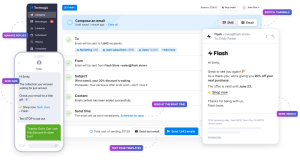
8. Infobip

Infobip is a global SMS service provider that enables businesses to send secure, high-delivery-rate messages at scale. With over 800 telecom connections and coverage across mobile users worldwide, Infobip supports a range of use cases, from marketing and notifications to two-factor authentication and transactional messages.
Pros:
- Global reach and scalability: Over 800 direct telco integrations ensure high deliverability and access to mobile users worldwide.
- High-volume messaging: Handles billions of messages annually, including over 4.4 billion interactions during Cyber Week 2024 alone.
- Multiple use cases: Supports promotional, transactional, reminder, and notification SMS, adaptable to various business needs.
- Two-factor authentication (2FA): Enhance account security with SMS OTPs and 2FA for customer verification.
- Personalized campaigns: Send tailored messages to customers using built-in personalization tools for higher engagement.
Cons:
- Slower to implement: Some users report that Infobip takes longer to set up and reach return on investment compared to faster-deploying alternatives.
- Complexity for smaller teams: The platform’s enterprise-grade features and scale may be more than smaller businesses need, making it less approachable.
- Support variability: Although robust, customer support doesn’t always meet expectations, especially when compared to competitors known for stronger service experiences.
Pricing:
- Custom pricing based on usage and message volume
- SMS costs vary by destination and delivery type
- No public pricing tiers listed; quotes provided on request
- Enterprise-level pricing suited for high-volume messaging
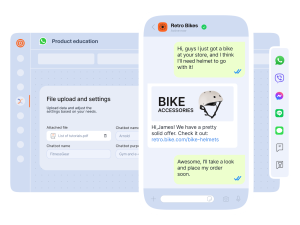
Source: Infobip
9. EngageBay
![]()
EngageBay offers SMS marketing as part of its CRM platform, giving businesses a simple way to reach customers directly on their phones. With customer data, AI-driven automation, and cross-channel capabilities, EngageBay enables personalized SMS campaigns that can scale.
Key features include:
- Personalized bulk messaging: Use stored customer attributes (like name, age, company, or location) to send tailored messages at scale.
- SMS templates: Save and reuse customizable templates to simplify recurring or one-off campaigns.
- Integrated CRM data: Access contact information to create targeted SMS workflows based on lifecycle stage or behavior.
- Centralized dashboard: Monitor all SMS responses and campaign performance alongside email, chat, and support activity.
- AI-driven automation: Trigger SMS sends based on user actions, scheduled events, or workflow conditions, no manual effort required.
Cons:
- Limited advanced capabilities: EngageBay may lack the depth of features found in more mature marketing platforms, especially for complex automation or analytics needs.
- Not ideal for large teams: While effective for small to midsize businesses, larger organizations may outgrow the platform or require more scalability and customization.
- Competition from specialized tools: Competing platforms often outperform EngageBay in areas like email marketing, CRM depth, or user experience, depending on the use case.
Pricing:
- Free plan includes limited SMS features with basic CRM tools
- Basic plan starts at $14.99/month per user
- Growth and Pro plans offer advanced automation, segmentation, and SMS workflows
- SMS usage billed separately based on provider and region
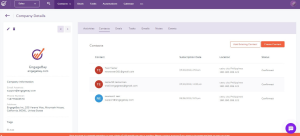
Source: EngageBay
10. MessageDesk

MessageDesk is a business texting platform to unify team communication by bringing SMS conversations, phone lines, and team members into one shared inbox. Instead of juggling multiple numbers or relying on personal phones, businesses can use their existing VoIP or landline numbers to send and manage professional text messages.
Pros:
- Shared team inbox: Centralize all SMS threads across phone lines so teams can collaborate, respond, and assign messages from one place.
- Keep your number: Add texting to an existing landline or VoIP number, no need to switch providers or change systems.
- A2P 10DLC registration support: Get guided assistance through the registration process to stay compliant with carrier requirements.
- Scheduled messaging: Plan and automate texts in advance for promotions, reminders, or follow-ups.
- Team collaboration tools: Assign conversations, leave internal notes, and ensure no message gets missed or duplicated.Cons:
- Slower ROI: Some users note it takes longer to realize value from MessageDesk compared to alternatives with faster setup and onboarding.
- Limited features for scaling: While effective for basic team texting, the platform may lack advanced tools needed for large-scale or highly automated messaging operations.
- Narrow focus: MessageDesk is best suited for appointment reminders and shared inbox use cases, which may limit its fit for broader marketing needs.
Pricing:
- Plans start at $14/month for basic features
- Higher tiers offer team collaboration tools, automation, and shared inbox capabilities
- SMS usage is billed separately based on volume
- Free trial available; no credit card required
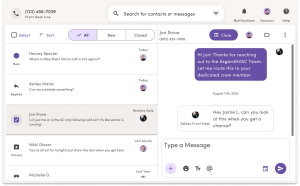
Source: MessageDesk
11. Attentive

Attentive is a performance-driven SMS marketing platform to create high-converting, two-way conversations throughout the customer lifecycle. Supporting SMS, MMS, and RCS messaging, Attentive helps brands to deliver personalized, dynamic content that drives engagement and revenue.
Pros:
- Omnichannel messaging: Send promotional, transactional, and conversational content via SMS, MMS, and RCS from one platform.
- Dynamic personalization: Use engagement data to segment audiences and personalize messages with rich media and interactive elements.
- AI-powered campaigns: Automatically optimize content, timing, and frequency using AI to maximize revenue from each send.
- Two-way conversations: Enable real-time engagement with features like Suggested Replies and Attentive Concierge™, blending AI with live agent support.
- Automated scheduling: Build multi-touch campaigns and recurring sends in just a few clicks using scheduling tools.
Cons:
- Higher pricing: Attentive is often viewed as more expensive than competing platforms, which may be a concern for smaller teams or budget-conscious businesses.
- Slower return on investment: Users report that it can take longer to achieve measurable outcomes compared to faster-moving alternatives.
- Complexity for new users: Despite strong features, the platform may have a steeper learning curve and require more time to fully configure for optimized use.
Pricing:
- No public pricing listed; all plans are custom
- Pricing typically based on list size and message volume
- Designed for mid-size to enterprise retailers
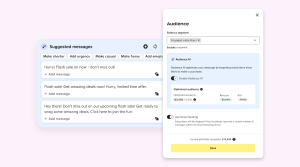
Source: Attentive
12. SlickText

SlickText is an SMS marketing platform to help businesses grow their audience, send targeted messages at scale, and automate customer engagement. Whether looking to collect subscribers online or in person, deliver mass texts, or hold one-on-one conversations, SlickText offers a set of tools to drive real-time interaction and revenue.
Pros:
- List growth tools: Capture subscribers through popups, web forms, QR codes, keywords, and social-friendly tap-to-join links.
- Mass texting at scale: Send personalized, behavior-based messages to ten or ten million contacts using real-time segmentation.
- AI message generation: Use AI Compose to write and optimize campaign content for higher engagement.
- Advanced segmentation: Filter and target audiences using limitless data points and contact behavior to increase relevance.
- Automated customer journeys: Trigger texts based on user actions and data to deliver timely, personalized messaging flows.
Cons:
- Slower ROI: Users frequently mention that SlickText takes longer to generate returns compared to faster-to-implement alternatives.
- Higher cost perception: While feature-rich, the platform is seen as more expensive than other tools offering similar SMS marketing capabilities.
- Limited flexibility for non-marketing use cases: SlickText is optimized for promotional messaging, which may limit its usefulness for teams needing transactional or support-related messaging flows.
Pricing:
- Paid plans start at $29/month for up to 500 messages
- Tiered pricing based on message volume and number of keywords
- Higher plans include advanced features like drip campaigns and integrations
- 14-day free trial available; no credit card required
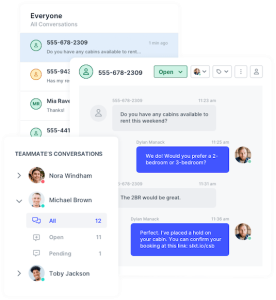
Source: SlickText
Choosing the Right SMS Marketing Service Provider
Ease of Use and Support
User experience plays a significant role in how quickly your team can launch campaigns and manage ongoing communications. Look for an SMS marketing platform with an intuitive interface, clear navigation, and accessible help resources. A short learning curve and guided onboarding minimize setup time and reduce errors during campaign rollout.
Support offerings can differ widely across providers. Consider whether the platform offers live chat, email, phone support, or a dedicated account manager. Reliable support is vital in resolving technical issues quickly and ensuring campaigns run smoothly, especially during time-sensitive promotions or high-traffic periods.
Security and Data Compliance
Security and compliance are critical when sending SMS campaigns, given the personal nature of mobile numbers and the regulatory landscape. The provider should offer encryption, secure data storage, and access controls to protect customer data. Platforms that meet industry standards (such as GDPR, HIPAA, or TCPA) help reduce legal risk and safeguard user privacy.
Check for features like automated opt-in management, easy unsubscribe mechanisms, and detailed audit logs. These tools ensure your campaigns meet local and international compliance requirements, prevent accidental spam, and maintain customer trust. An SMS service that prioritizes data protection is essential for businesses in regulated industries or with broad geographic reach.
CRM and eCommerce Integrations
Integration with CRM and e-commerce platforms simplifies data management and enhances overall marketing workflow. Look for SMS services that natively connect to systems like Salesforce, HubSpot, Shopify, or WooCommerce. This connection allows for automated data syncing, targeted messaging based on purchase activity, and unified customer records.
APIs and pre-built integrations help reduce manual entry, streamline campaign targeting, and enable real-time reporting. When multiple systems communicate, you gain a more comprehensive view of your customers’ journeys and can trigger relevant SMS at ideal moments in their lifecycle. Integrated SMS tools reduce friction and deliver more consistent experiences.
Region-Specific Considerations
International SMS campaigns face unique regional requirements, such as carrier restrictions, language localization, or country-specific consent rules. The ideal SMS provider understands these regional nuances and offers support or guidance as needed. Ensure the platform can handle delivery across the countries you serve and accommodate local compliance regulations.
Consider local number provisioning, SMS costs per region, and delivery reliability in your target markets. If your business operates globally, check whether the provider supplies country-specific analytics and support, and can manage opt-in/opt-out flows in different languages. Taking region-specific considerations into account ensures your campaigns reach their audience efficiently and lawfully.
Conclusion
SMS marketing continues to be a high-impact channel for businesses looking to engage customers with timely, personalized messaging. With near-instant delivery, high open rates, and robust automation options, it offers a powerful way to drive conversions and build customer relationships. By choosing a platform that aligns with your goals, integrates smoothly with your existing systems, and supports compliance across regions, you can unlock the full potential of SMS as a core part of your marketing strategy.
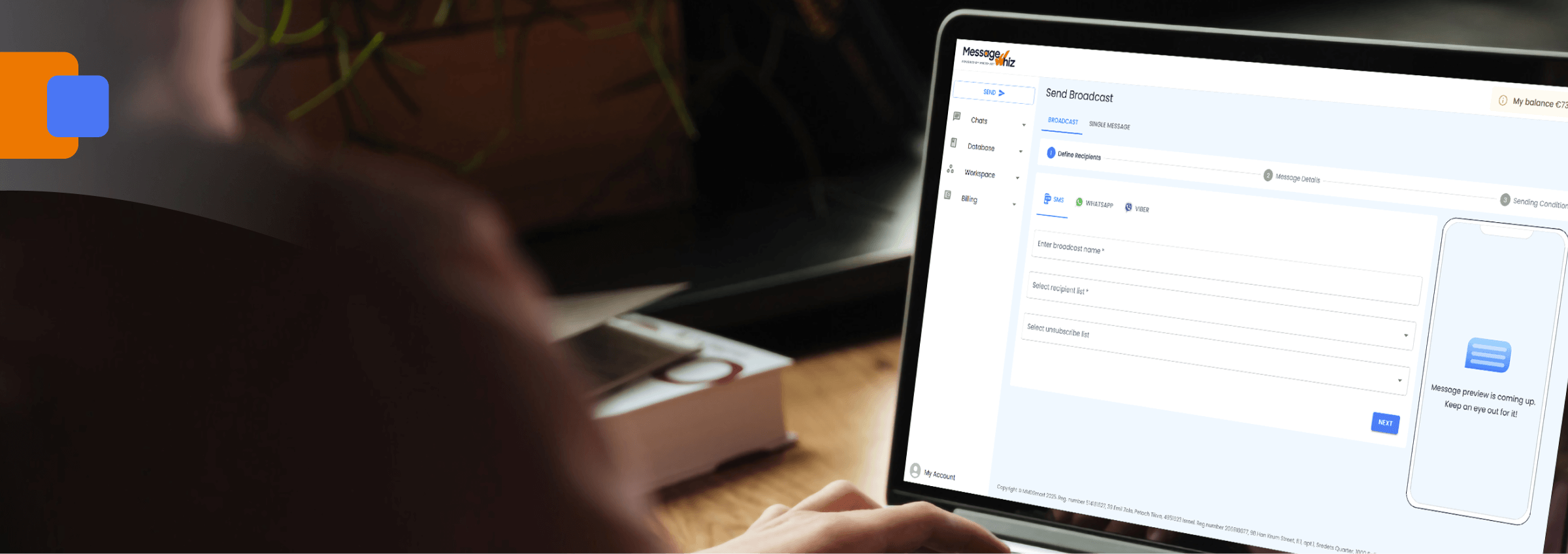

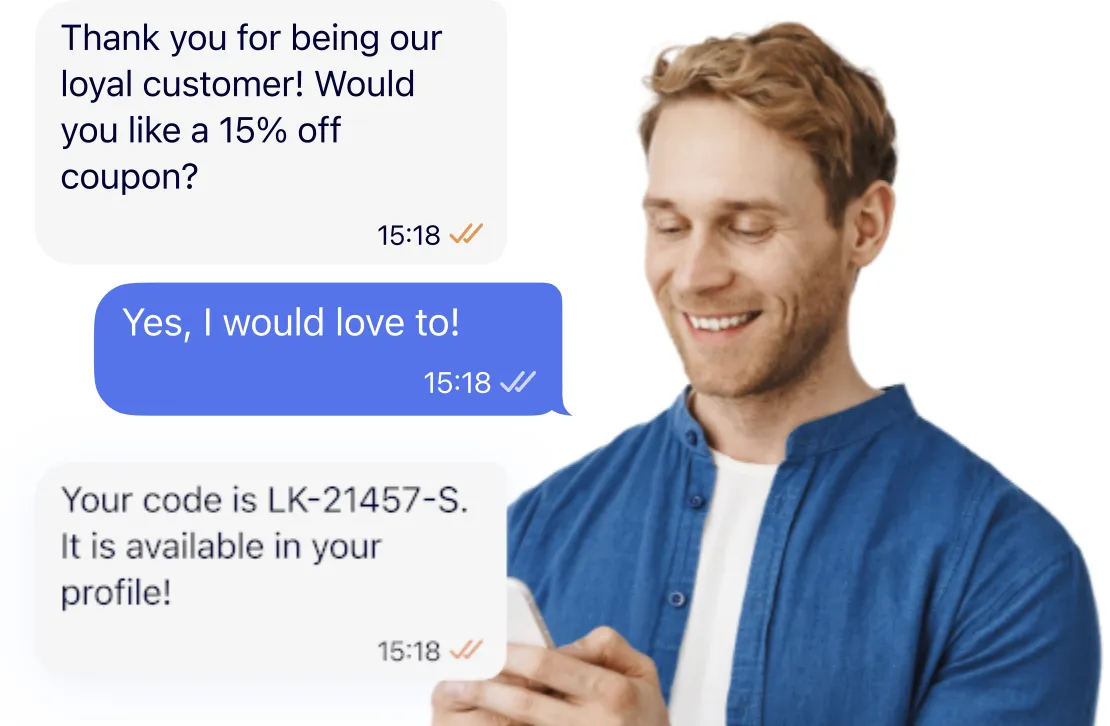
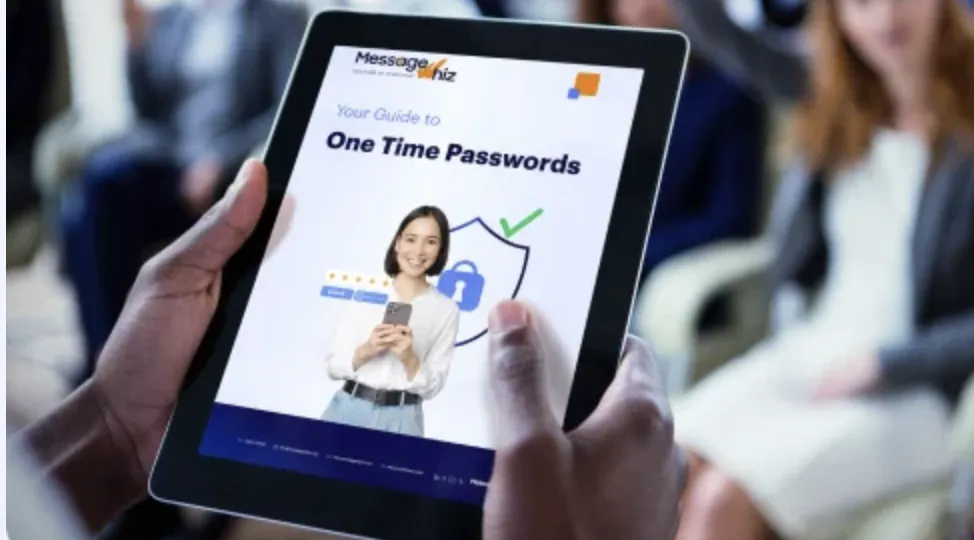
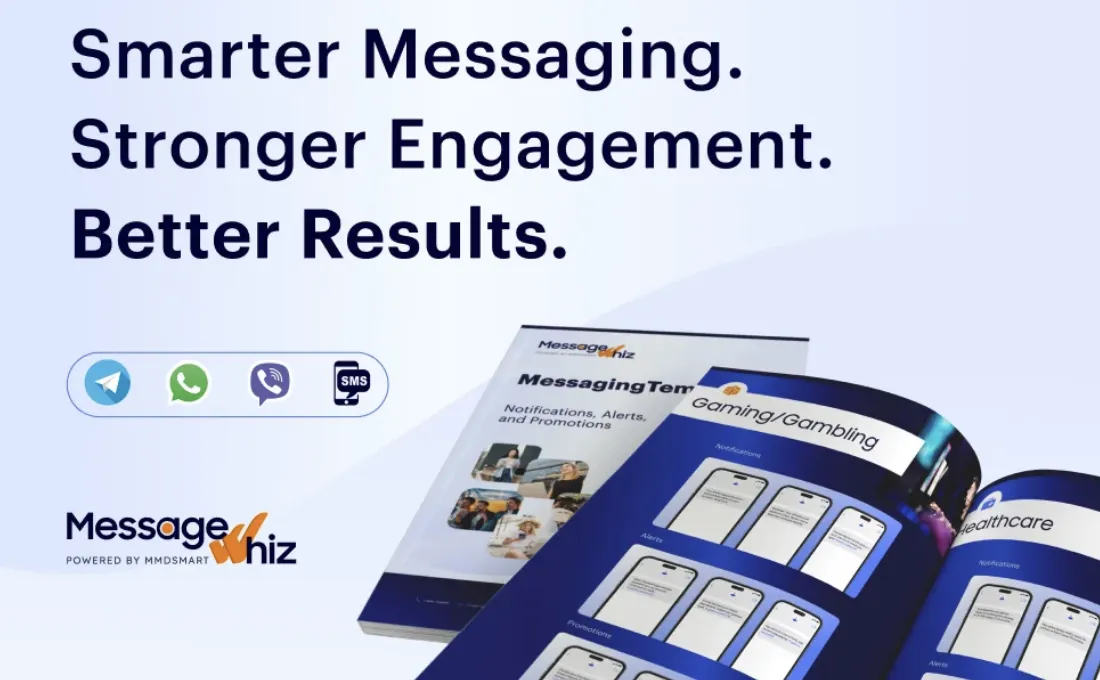

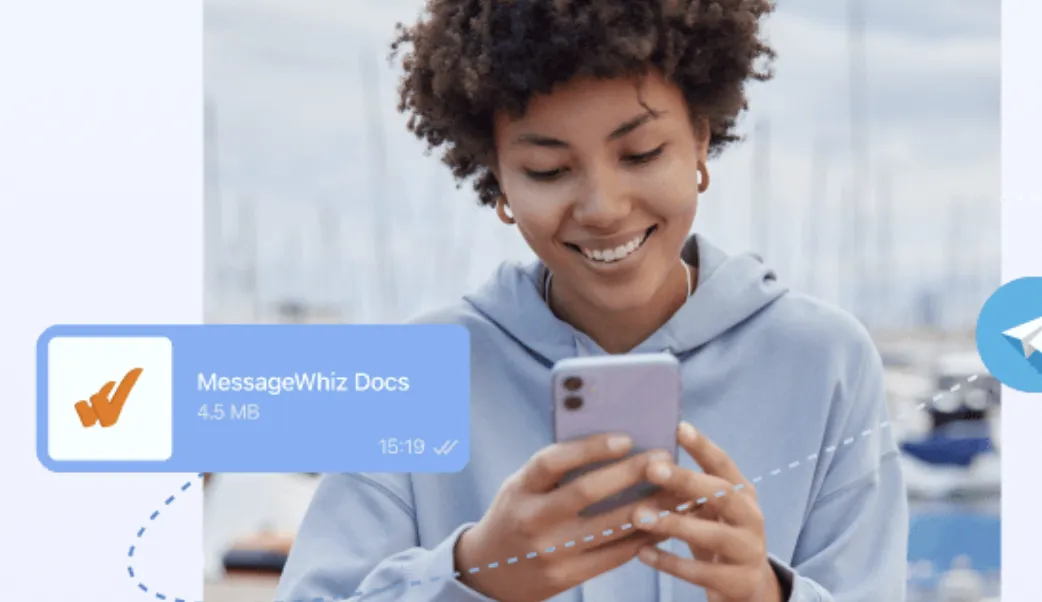
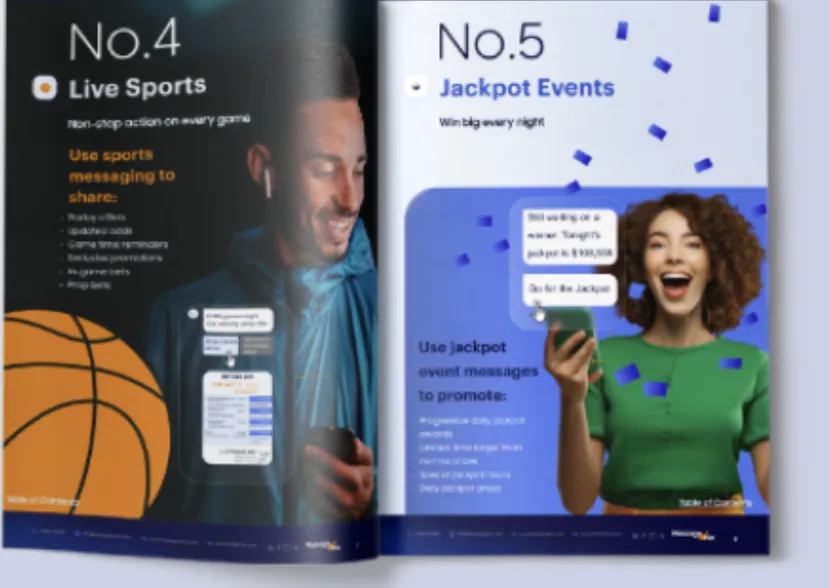

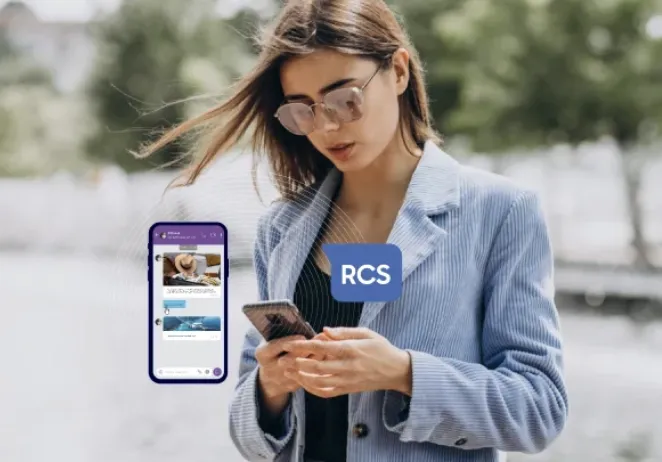
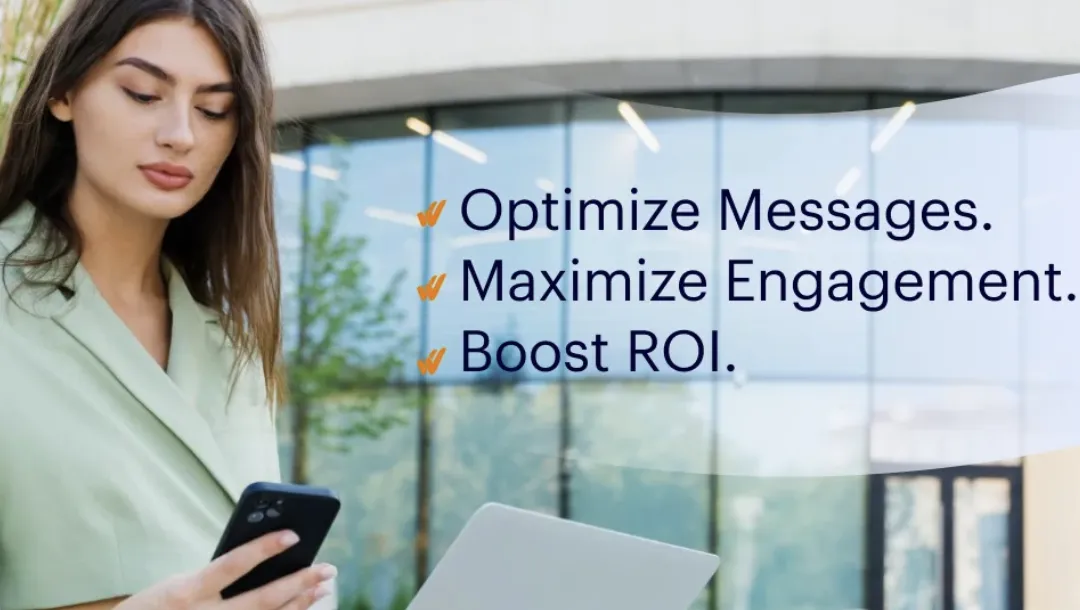




![10 SMS Marketing Services Compared [2026 Guide] | Message Whiz blog image](https://messagewhiz.com/wp-content/uploads/2025/11/smiling-woman-holding-smartphone-remixed-media-2.jpg)

